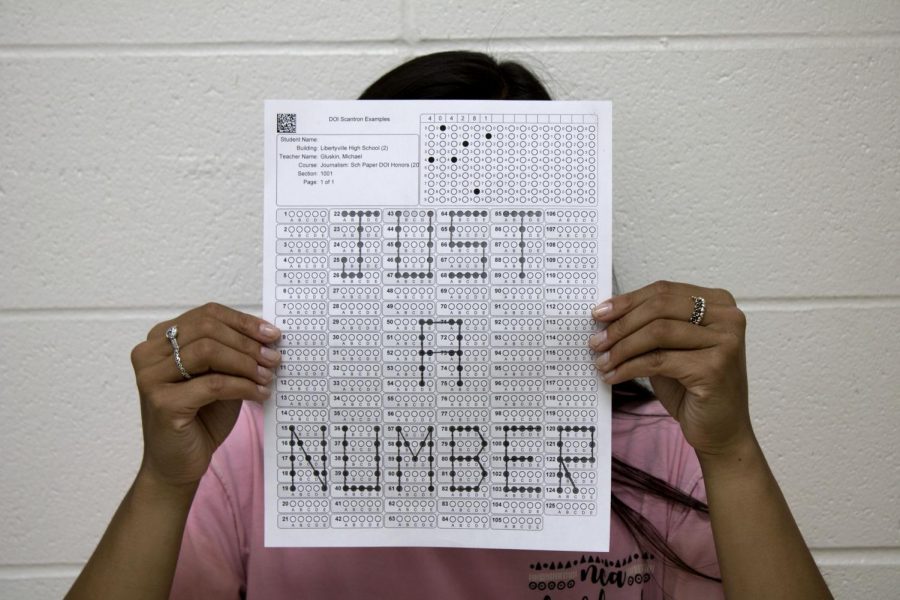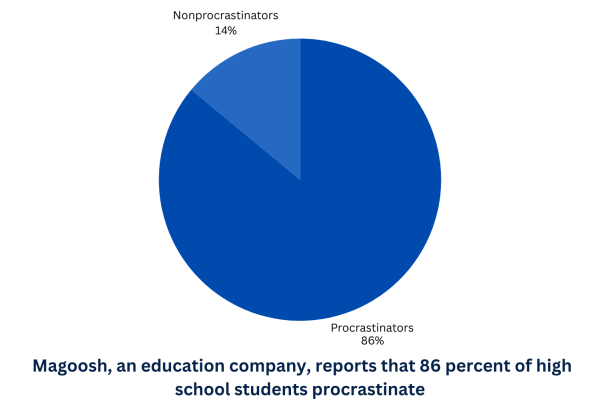Not a Numbers Game
In high school, it’s easy for students to be defined by their two-digit GPA or test scores, making it difficult for them to understand that they can have an impact that goes way beyond these mere numbers.
Regardless of if you are a freshman, senior, teacher or parent reading this, I’m sure you’ve had a conversation about the college admissions process. Maybe these conversation have been centered on the evident and unfortunate problems that are present in the admissions system. For example, college-bound students spend immense time, effort and money on applying to college, and after all of those efforts, they still may be rejected for no apparent reason. While the system is flawed in more ways than one, the largest flaw present within the process is how students are evaluated based on numbers and, consequently, are forced to play a numbers game.
This numbers game refers to students’ standardized test scores and grade point average (GPA), and it is often what determines the colleges students apply to and whether students are accepted into these colleges or not. As more competitive schools have higher thresholds for average GPAs and test scores of admitted students, it makes sense that the students who fall within those thresholds generally apply to those schools. The same is true for less competitive schools. With a logical and numerical approach, this system makes perfect sense.
However, with that being said, students are being defined by numbers that show nothing about who they are. Sure, a brilliant student may receive a 36 on their ACT, but a brilliant student may also receive a 20 on their ACT. The ability to sit down for four hours and take a test on four subjects says absolutely nothing about a student’s ability to persevere. It says nothing about their passions. It says nothing about their grit, their aspirations and what they are truly capable of. That is simply unfair.
As far as GPA goes, a student who works day and night may have a 4.5 GPA, and a student who works day and night may have a 2.0 GPA. While GPA is a slightly more holistic view of a student’s intelligence, as it is built up over four years — as opposed to four hours — it doesn’t say who a student is as a person or what all of their intelligence consists of. While there is truth to the idea that students who work hard and study hard can achieve scores and grades that are equivalent to “naturally” smart students, the concept of intelligence goes beyond the realm of academics.
I’m not trying to say that these numbers aren’t important or that they, in some way, do not indicate what students are capable of academically speaking. But students are more than two numbers and should be treated as such. The whole purpose of these two numbers is that they help to create a threshold for students to be admitted to college. Once students are at college, they are studying their specific interests in order to become knowledgeable on whatever field they may want to enter post-college. Students aren’t going to college to build a perfect GPA or get an A+ on every single exam; they’re attending school so they have the opportunity to gain knowledge and experience they can apply to their future jobs. In order for students to be able to do this, they need to understand that the impact they are going to have in their fields must and will go beyond the number that they earn on a test or the GPA they earn over another four years of school. This understanding cannot be realized through the current admissions system.
The real world isn’t demanding for workers to simply be able to complete a task, as is expected in standardized testing, nor is the real world demanding workers who solely focus on obtaining a perfect track record, as is expected with GPA . The world is rapidly changing and developing; new skill sets are needed in the workforce now that stretch beyond simply task completion. As indicated by the U.S. Chamber of Commerce, the labor force in University of Phoenix conducted a “national survey [to] recognize the importance of soft skills, behavioral competencies like the ability to learn new things, interpersonal communication, and collaboration, in getting hired”.
From the survey, the top skills needed are as follows: ability and willingness to learn new skills (84 percent); critical thinking and problem solving (82 percent); collaboration and teamwork (74 percent); interpersonal communication (72 percent); and the ability to analyze and synthesize information (69 percent).
Prioritizing numbers and putting endless time and effort into them is simply not as important as being able to exemplify the characteristics listed above. If colleges are looking for students who are going to change the world, they’re going to have to start admitting students based on their experiences, their creativity, their ability to problem solve in a pressure-filled situation and their ability to collaborate.
While I have no clear answers as to how this can or should happen, maybe more emphasis could be put on the essays students submit or maybe college admissions officers could reach out to the students they are evaluating, as it’s their job to admit students based on the information they have. Regardless, there is one thing that I do know: it’s time to stop playing this numbers game.









